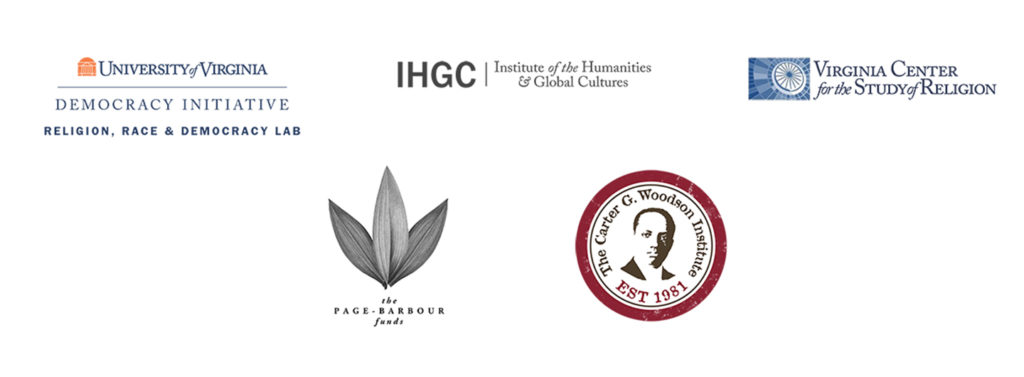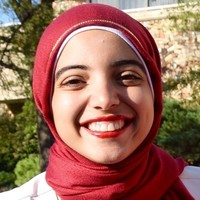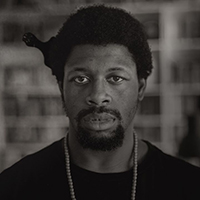Due to its role as the constitutive “underside” of the regime of modern, secular, liberal, democracy, Africa and its diaspora have long been sites of the most important and incisive critiques of and constructive projects aiming to reform, rethink, or revolt against the “interminable catastrophes” of (post)colonial modernity. Informed by African histories, social realities, and traditions, the papers in this panel interrogate the nature of “democracy,” “religion”, secularity, the state, and sovereignty to propose constructive solutions to present and past problems.
Part of the virtual conference, Religion and Democracy on the African Continent: Colonial Legacies and Postcolonial Possibilities.
Format
Each panelist will deliver a 10-minute presentation, followed by a 5-minute Q&A. There will be a 10-minute break halfway through the session and a 30-minute break at the end of the panel, after which closing remarks will be delivered.
Georgette Ledgister, “Paying our Debts to the Living and the Dead: Decolonizing and Indigenizing Authority, Power and Governance in the African Public Sphere”
Anwar Omeish, “Toward the Modern Revolution: Frantz Fanon, Secularity, and the Horizons of Political Possibility in Revolutionary Algeria”
Mary Nyangweso, “Religion, Democracy and Social Development in Post-Colonial Africa: Considerations of the Way Forward”
Olufemi Taiwo, “Yoruba Cultural Practices and The Moral Ancestor View”
Moses Ochonu, “Decolonizing Democratization and Africanizing Democracy in the Nigerian Experience”
Chair: Oludamini Ogunnaike
Closing Remarks: Jacob Olupona and Oludamini Ogunnaike
Speakers
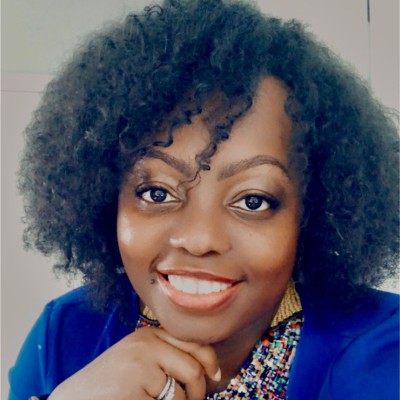
Georgette Ledgister
Dr. Georgette Ledgister is Vice President of Diversity, Inclusion, and Belonging at Universal Music Group. She has served as a Visiting Lecturer and Research Associate on Women’s Studies and African Religions at Harvard Divinity School as well as Visiting Professor of Religion at Agnes Scott College where she taught African Christianity, focusing on the problems, possibilities and promise of Christianity as it engages with and is shaped by African traditional religions. Her research lies at the intersection of comparative religions, gender, social ethics, and conflict. She previously served as the Executive Director of Fearless Dialogues, an organization that specializes in creating unique spaces in which unlikely partners can gather to have hard and heartfelt dialogue about difficult subjects. She holds undergraduate and master’s degrees from Emory University, where she also earned a Ph.D. in social ethics and comparative religions. Her scholarship assists organizations, companies, foundations, universities, schools, and faith communities, to develop the skills and strategies to tap into the creative and constructive possibilities of conflict.
Anwar Omeish
Anwar Omeish is currently reading for her MPhil in Islamic Studies and History at the University of Oxford. Omeish is Copy Editor for Africa Is a Country and Director of Civil Society and Community at the Libyan American Alliance. She graduated from Harvard University in 2019 with a BA in Social Studies (secondary in Comparative Literature) with highest honors and received the 2019 Thesis Prize for Toward the Modern Revolution: Frantz Fanon, Secularity, and the Horizons of Political Possibility in Revolutionary Algeria.
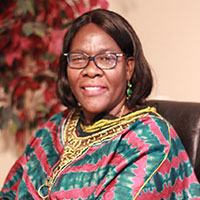
Mary Nyangweso
Dr. Mary Nyangweso is the J. Woolard and Helen Peel distinguished professor in Religious Studies at East Carolina University (Greenville, North Carolina). She earned her Doctor of Philosophy in the Sociology of Religion (PhD) at Drew University. She also received her Bachelor’s in Education at Kenyatta University, Nairobi Kenya; Master’s in Philosophy (Religion) at Moi University, Eldoret, Kenya; Master’s in Theology at Candler School of Theology, Emory University, Atlanta, Georgia.
Dr. Nyangweso specializes in African religions, Islam, Religion and sexuality and gender rights. She examines socio-cultural determinants of gender-based violence and other issues from African, Christianity and Islamic perspectives. She has published extensively on matters related to domestic violence, female genital cutting and HIV/AIDS. She is author of two books; Female Genital Cutting: Mutilation or Cultural Right? (Praeger, 2014) and Female Circumcision: the Interplay between Religion, Gender and Culture in Kenya (Orbis, 2007) and co-editor of Religion in Gender Based Violence, Immigration and Human Rights and editor of World Religions in a Global Society: A Reader (2021). She has also authored several peer review journal articles and book chapters on religion and on women in Africa and is also a human rights activist advocating for gender related rights. She has received many other honors including a Fulbright Award.
Olufemi Taiwo
Olufemi Taiwo is Assistant Professor of Philosophy at Georgetown University. He completed his PhD at the University of California, Los Angeles. Before that, he completed BAs in Philosophy and Political Science at Indiana University. His first book, Reconsidering Reparations, argues that reparations should be viewed as a worldmaking project, and as such requires climate justice. It was published in January 2022 and is available here. His second book, Elite Capture is scheduled for release in May 2022. Dr. Taiwo’s theoretical work draws liberally from the Black radical tradition, contemporary philosophy of language, contemporary social science, materialist thought, histories of activism and activist thinkers.
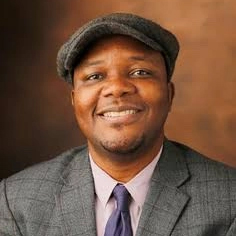
Moses Ochonu
Moses Ochonu is the Cornelius Vanderbilt Professor of History at Vanderbilt University, where he specializes in the modern history of Africa, with a particular focus on the colonial and postcolonial periods in Nigeria. He is the author of four books, including Colonial Meltdown: Northern Nigerian in the Great Depression, (Ohio University Press, 2009), Colonialism by Proxy: Hausa Imperial Agents and Middle Belt Consciousness in Nigeria, (Indiana University Press, 2014), which was awarded finalist for the Herskovits Prize in African Studies by the African Studies Association, Africa in Fragments: Essays on Nigeria, Africa, and Global Africanity (New York: Diasporic Africa Press, 2014), and Emirs in London: Subaltern Travel and Nigeria’s Modernity (Indiana University Press, 2022). He is the editor of Entrepreneurship in Africa: A Historical Approach (Indiana University Press, 2018). With Abdulbasit Kassim, he is currently working on a book manuscript on the historical aspects and dimensions of Boko Haram jihadism and religious militancy in Nigeria.
Dr. Ochonu was twice the recipient of the fellowship of the American Council of Learned Societies (ACLS). His research has also been supported by awards and fellowships from the Harry Frank Guggenheim Foundation, the Ford Foundation, the Rockefeller Foundation, National Endowment for the Humanities (NEH), the American Historical Association, Franklin Roosevelt Institute, and the British Library.
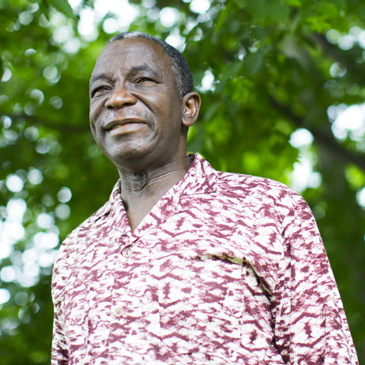
Jacob Olupona
Jacob K. Olupona is Professor of African Religious Traditions, Harvard Divinity School and Professor of African and African American Studies in the Faculty of Arts and Sciences. He studied at the University of Nigeria, Nsukka and Boston University where he received his PhD in Comparative Religion in 1983. He is currently working on a new ground-breaking study of the explosive growth of evangelicalism across all branches of Christianity, expanding the current discourse that is largely focused on Pentecostalism by identifying its affect on and place in the larger context of Nigerian Christianity and society. Olupona has authored or edited numerous books, including Kingship, Religion and Rituals in a Nigerian Community: A Phenomenological Study of Ondo Yoruba Festivals and The City of 201 Gods: Ile-Ife in Time Space and the imagination, in which he examines the modern urban mixing of ritual, royalty, gender, class, and power, and how the structure, content, and meaning of religious beliefs and practices permeate daily life. His most recent edited volume, Ifa Divination: Knowledge, Power, and Performance analyzes the famous tradition of Ifa divination from perspectives as varied as theology, art and aesthetics, philosophy, and cultural studies. Olupona has received prestigious grants from the Guggenheim Foundation, the American Philosophical Society, the Ford Foundation, the Davis Humanities Institute, the Rockefeller Foundation, the Wenner-Gren Foundation, and the Getty Foundation. He has served on the editorial boards of three influential journals and was the president of the African Association for the Study of Religion. Olupona has received an honorary doctorate in divinity from the University of Edinburgh in Scotland and an honorary Doctor of Letters degree from the Obafemi Awolowo University in Ile-Ife and the University of Abuja, Nigeria. In 2008 he was awarded the highest distinction the Nigerian government bestows on civilians, the Nigerian National Order of Merit, and he was inducted into the Nigerian Academy of Letters in 2015. In October 2015, he was honored with the Reimar Lust Award by the Alexander von Humboldt Foundation, Germany.
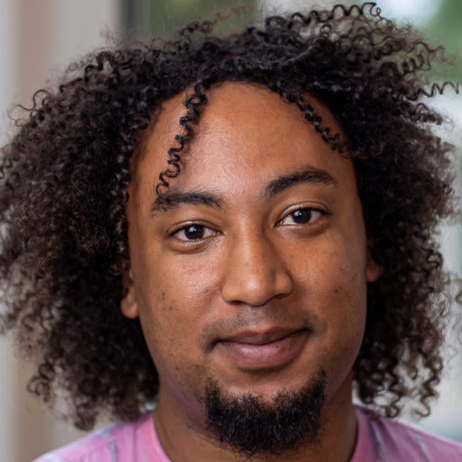
Oludamini Ogunnaike
Oludamini Ogunnaike is Assistant Professor of African Religious Thought and Democracy at the University of Virginia, co-director of the Virginia Center for the Study of Religion, and a faculty partner with the Religion, Race & Democracy Lab. His research examines the philosophical and artistic dimensions of postcolonial, colonial, and pre-colonial Islamic and indigenous religious traditions of West and North Africa, especially Sufism and Ifa. He is the author of Deep Knowledge: Ways of Knowing in Sufism and Ifa, Two West African Intellectual Traditions (Penn State University Press, 2020) and Poetry in Praise of Prophetic Perfection: West African Madīḥ Poetry and its Precedents (Islamic Texts Society, 2020). He is currently working on two introductory book projects: Exploring Africana Philosophy (Equinox Press) and The Language of the Birds: An Introduction to Sufi Poetry and Poetics and conducting research comparing and contrasting indigenous/Islamic and Europhone theorizations and projects of decoloniality.
Ogunnaike earned his Ph.D. in African and African American Studies and Religion at Harvard University. Prior to his appointment at UVA, he taught at the College of William and Mary and held a postdoctoral fellowship at Stanford University. Professor Ogunnaike also writes and does work on the Philosophy of Religion, African Philosophy, Anthropology, Decoloniality, and Race.
Co-sponsored by
